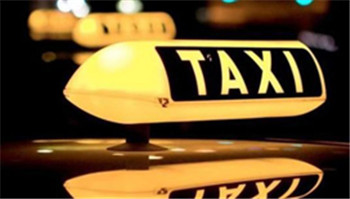
In February, Travis Kalanick, Uber chief executive, met Cheng Wei, chairman of the Chinese ride-hailing app Didi Dache, in Mr Cheng’s Beijing office. But that is just about the only detail of the encounter on which the two companies can agree.
今年2月,优步(Uber)首席执行官特拉维斯愠灓尼克(Travis Kalanick)与中国打车应用滴滴打车董事长程维在后者位于北京的办公室见面。但这只是两家公司关于这次会面唯一说法一致的细节。
Mr Cheng says Mr Kalanick and his team were dripping with condescension. “We could tell from the way they looked at us — they thought of us as just another local taxi app from Sichuan,” he told an audience at the Yabuli summit, an internet forum, held last weekend.
程维称,卡兰尼克和他的团队难以掩饰轻蔑神情。“他看我们的眼神就像是我们看四川本土的一个打车软件一样,”程维在最近举行的互联网论坛“2015亚布力中国企业家论坛夏季高峰会”上告诉听众。
He says Mr Kalanick ended with an ultimatum: sell us 40 per cent of your company or else face “embarrassing defeat” in a war with Uber.
他说,卡兰尼克在谈话末尾下了一道最后通牒:要么把你的公司的40%卖给我,要么在与优步的战争中面临难堪的失败。
“I told him, ‘In 1840 when the first western powers arrived in China, they put forth a similar proposal. Give up Taiwan, open up Guangzhou, or else we will take the war all the way to the gates of the Forbidden City!’,” says Mr Cheng.
程维说:“我跟他讲,1840年开始第一股列强来到中国时也是开出了同样的条件,要不然割让台湾、开放广州,要不然就打到紫禁城。”
“Foreign companies see China as a territory to be conquered,” he continued.
“国外企业把中国企业当做开疆拓土的对象,”他表示。
Uber says its “recollection of the conversation is very different”, adding that the meeting was “super friendly”.
优步表示,其对“那次对话的记忆完全不一样”,并补充说,那次会面“非常友好”。
Mr Kalanick has admitted to getting “passionate” in dealings with competitors in the past. Lyft, a US rival, has accused Uber of everything from poaching investors to clogging its system with fake orders.
卡兰尼克承认,过去与竞争对手往来的时候自己会变得很“激昂”。优步在美国的竞争对手Lyft曾指控优步不择手段,从挖走投资者,到用假订单堵塞Lyft系统。
“I realise that I can come off as a somewhat fierce advocate for Uber,” he said in a speech in June. “I also realise that some have used a different ‘a’ word to describe me.”
“我意识到,我的言行可能会给人以优步的狂热支持者(advocate)的印象,”卡兰尼克在6月的一次演讲中表示,“我还意识到,一些人曾用另一个‘a’字母开头的词来形容我。”
The next few months will show whether Uber has bitten off more than it can chew in China. The country is notorious as a market that big US internet companies, from Amazon to eBay to Google, have all failed to crack, either due to being blocked outright or outmanoeuvred by a local competitor.
接下来几个月将见证优步在中国市场是否吃不了兜着走。中国有一个不好的名声:从亚马逊(Amazon)、eBay到谷歌(Google)等多家美国大型互联网企业都未能打开这个市场——或者是因为遭到彻底屏蔽,或者是败给本土竞争对手。
Like the initial meeting between Mr Cheng and Mr Kalanick, how Uber is doing in China is a matter of perspective. The company says it has about 50 per cent market share in private taxi hailing, while Didi says it controls about 80 per cent of the market.
就像程维和卡兰尼克的初次会面一样,评价优步在中国的表现是个视角问题。优步称其拥有私人打车市场50%的市场份额,而滴滴则表示其控制了约80%的市场。
Both sides are also gunning for each other with massive subsidies — in June Uber said it would spend $1bn in China on subsidies and was logging 1m rides per day. Didi, meanwhile, raised $2bn in a funding round in June and has not yet said how the money will be spent.
双方都依靠大规模补贴来打击对方——6月优步表示将在中国支出10亿美元用于补贴,其每日打车订单达到了100万单。同时,滴滴在6月的一轮融资中募集到20亿美元,目前还未公布将如何使用这笔资金。
Ding Daoshi, founder of Sootoo Research, a Beijing-based internet research group, says the phase of explosive growth for both companies may have passed. “The height of the cash-burning phase is over for both companies,” he says. “They are now focusing on their core customers — those in the cities whose demand does not disappear when it is more expensive.”
北京互联网研究集团速途研究院(Sootoo Research)创始人丁道师表示,这两家公司的爆炸性增长阶段可能都已过去,“对这两家公司而言,烧钱阶段的高峰已经结束,”他表示,“它们正专注于核心客户——当服务比较昂贵时需求仍不消失的城市人群,”
To counter Didi’s local advantage — and raise more money to wage war — Uber has tried to go local, setting up Uber China. It is the only time the business has set up a separate company in a foreign market. It has tried to raise local finance, partly in an effort to build ties to China’s business establishment.
为了对抗滴滴的本土优势——以及募集更多资金来发动战争——优步试图走本地化道路,在中国成立了Uber China。这是优步首次在海外市场单独成立一家公司。优步试图募集本土资金,在一定程度上也是为了和中国商界的体制内人士打造关系。
But Didi’s own funding round makes it clear that China’s establishment is closing ranks around its local champion. Even existing investors in Uber, such as Hillhouse Capital, are backing its competitor Didi in China.
但滴滴的融资行动清楚地表明,中国商界已经团结起来支持本土冠军企业。即使是优步现有的投资者,比如高瓴资本(Hillhouse Capital),也支持其中国竞争对手滴滴。
Didi’s local advantage is also clear to drivers, who say those at Uber face police discrimination — private taxis are technically illegal in China, but enforcement is selective, according to an Uber driver named Bing Wen. “If the police pull you over, and you say you’re a Didi driver, they let you go. If you’re an Uber driver, you’re fined,” says Mr Bing.
司机们也清楚地了解滴滴的本土优势,他们表示,优步司机面临警察的歧视——严格说来私人出租车在中国并不合法,但根据一位名叫邴文(音译)的优步司机的说法,执法是有选择性的。“如果警察让你把车停到路边,你说你是滴滴司机,他们会让你走。如果你是优步司机,你就会遭到罚款,”他表示。












